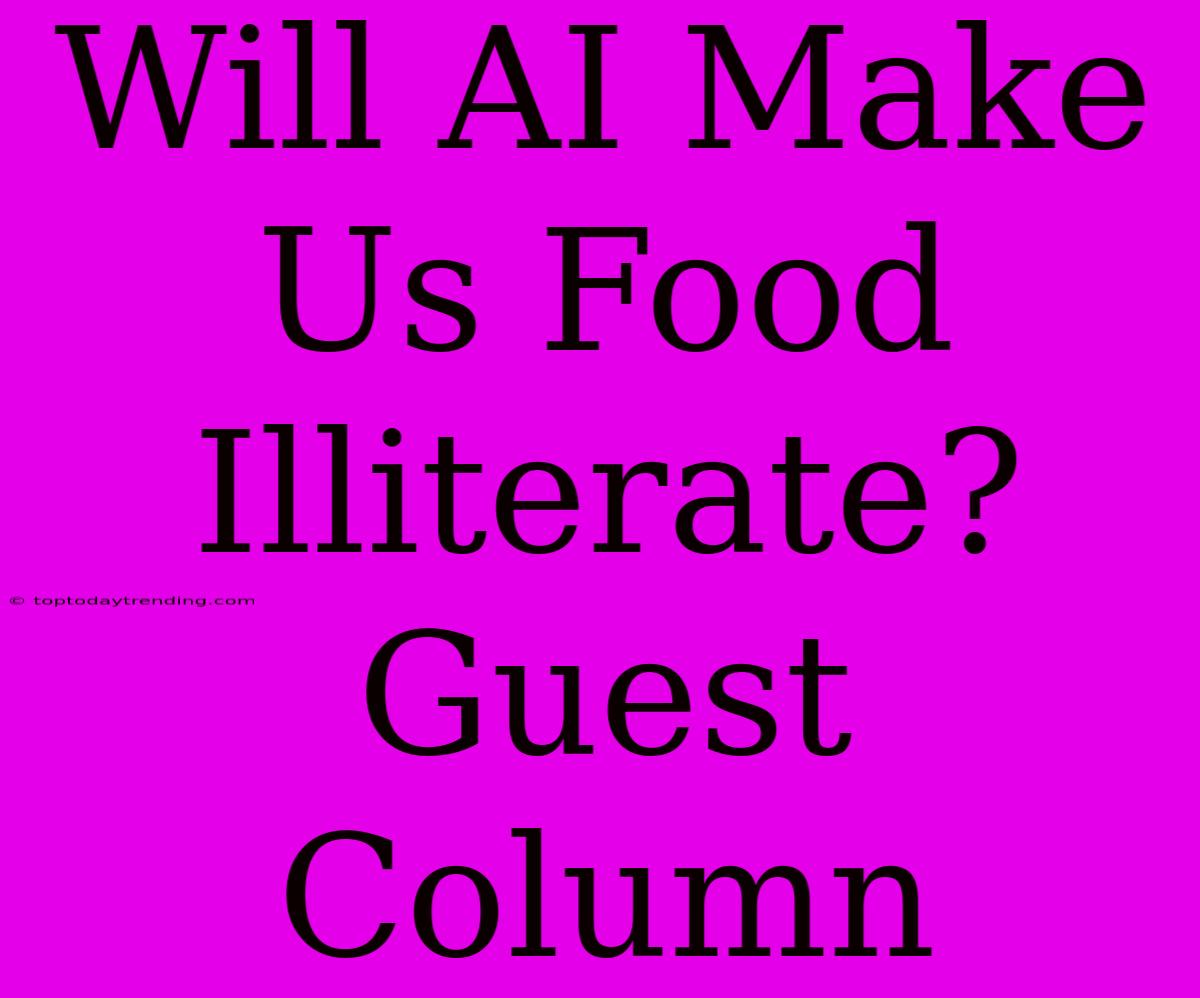Will AI Make Us Food Illiterate? Guest Column
The world is abuzz with the potential of AI. From self-driving cars to personalized medicine, artificial intelligence is poised to revolutionize every facet of our lives. But while we celebrate its advancements, a lurking question remains: Will AI, in its pursuit of efficiency and automation, make us food illiterate?
The Rise of AI in Food
AI is already making its mark on the food industry.
- Smart Farms: Algorithms optimize crop yields, manage irrigation, and even detect diseases in real-time.
- Personalized Nutrition: AI analyzes our dietary needs and preferences, generating customized meal plans and recommending tailored grocery lists.
- Automated Food Production: Robots assemble, cook, and even package food, potentially leading to faster and more efficient food production.
While these advancements hold tremendous promise, a potential pitfall looms.
The Paradox of Progress
AI's focus on optimization and automation may inadvertently erode our connection with food. Imagine a world where:
- Grocery shopping becomes a sterile experience: We swipe our phones, order our groceries, and receive perfectly packaged, uniform produce, devoid of the imperfections that add character and story to real food.
- Cooking becomes a forgotten skill: Meal kits, robotic chefs, and AI-powered ovens eliminate the need for hands-on cooking, depriving us of the joy and satisfaction of creating food from scratch.
- Understanding food becomes a luxury: We rely on algorithms to tell us what to eat, rather than developing our own intuition about nutrition and the environment.
This potential loss of food literacy could have far-reaching consequences.
The Importance of Food Literacy
Food literacy encompasses a broad understanding of food, including:
- Where our food comes from: Knowing the origins of our food fosters appreciation for farmers, land management, and the interconnectedness of our food systems.
- How food is produced: Understanding food production processes, from farm to table, allows us to make informed choices about sustainability and ethical practices.
- The nutritional value of food: Developing a deeper understanding of food's impact on our health empowers us to make conscious choices for well-being.
- The cultural significance of food: Recognizing food's role in traditions, celebrations, and social interactions enriches our cultural understanding and appreciation.
Without food literacy, we risk becoming passive consumers, at the mercy of AI algorithms that dictate our food choices.
Preserving Food Literacy
To ensure that AI enhances our relationship with food, rather than diminishing it, we must prioritize:
- Investing in food education: Integrating food literacy into school curriculums, promoting community gardening programs, and supporting hands-on cooking classes are crucial.
- Supporting local food systems: Patronizing farmers markets, supporting local farms, and advocating for sustainable agriculture practices help preserve food diversity and strengthen community bonds.
- Encouraging mindful consumption: Paying attention to the origins, ingredients, and preparation of our food allows us to appreciate its value and make conscious choices about our consumption.
AI can be a powerful tool for improving food systems, but it's up to us to ensure that it doesn't come at the cost of our understanding and appreciation for food. By fostering food literacy, we can harness the power of AI to create a more sustainable, equitable, and delicious future for all.

